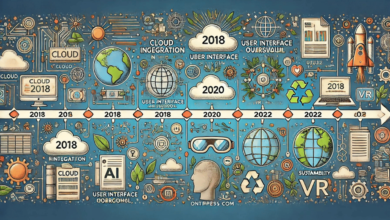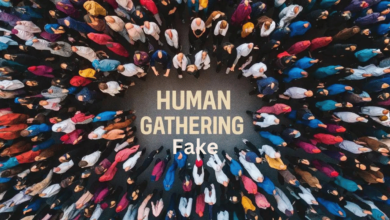Expert Bening 1 Events Stay Informed About Upcoming Industry Gatherings:

Table of Contents
Expert Bening is a profound and nuanced concept that transcends simple proficiency in a skill or subject. It encompasses a deep, comprehensive understanding and Expert Bening a remarkable ability to apply knowledge effectively in real-world situations. Experts are distinguished by their advanced cognitive and analytical abilities, enabling them to solve complex problems with ease and precision. The journey from novice to expert is a transformative process, involving rigorous learning, practice, and adaptation.
The Journey from Novice to Expert Bening
The path to expertise is neither linear nor uniform. It involves Expert Bening a series of developmental stages where individuals progressively refine their skills and knowledge. Initially, beginners learn fundamental principles and gradually advance through deliberate practice, feedback, and reflection. This journey requires patience, persistence, and a willingness to embrace challenges. Over time, the consistent application of these principles leads to mastery, characterized by an intuitive grasp of the subject matter and the ability to innovate.
The Importance of Mastery
Mastery holds significant personal and professional benefits. On a personal level, achieving expertise fosters a sense of accomplishment and confidence, enhancing overall well-being. Professionally, experts are often sought after for their specialized skills, leading to career advancement and Expert Bening financial rewards. Beyond individual gains, mastery contributes to societal progress, as experts drive innovation, improve practices, and mentor the next generation.
The Psychology of Expert Bening
Cognitive Foundations of Expertise
The cognitive underpinnings of expertise are rooted in advanced memory and learning processes. Experts exhibit superior working memory, allowing them to hold and Expert Bening manipulate information efficiently. Their extensive knowledge base, organized into well-structured schemas, enables quick retrieval and application of relevant information. Additionally, experts excel in problem-solving and decision-making, employing sophisticated strategies that Expert Bening novices may overlook. This cognitive sophistication results from years of focused learning and experience.
Motivation and Passion
Motivation is a critical factor in the pursuit of expertise. Intrinsic motivation, driven by genuine interest and passion for the subject, is particularly powerful. Individuals Expert Bening who are intrinsically motivated engage deeply with their work, finding joy and satisfaction in the process of learning and improvement. This sustained passion is crucial for enduring the challenges and setbacks encountered on the path to mastery. Conversely, extrinsic motivation, such as rewards or recognition, can complement intrinsic motivation but is less effective when relied upon exclusively.
The Path to Mastery
Stages of Skill Acquisition
The journey to Expert Bening involves distinct stages of skill acquisition. Initially, novices rely heavily on explicit instructions and basic principles. As they progress to the advanced beginner stage, they start recognizing patterns and applying learned principles with more independence. Competent individuals develop a deeper understanding, enabling them to plan and make informed decisions. Proficient practitioners demonstrate intuitive grasp and flexible thinking. Finally, experts operate at an automatic level, effortlessly integrating knowledge and skills in novel situations.
The Role of Deliberate Practice
Deliberate practice is the cornerstone of developing expertise. It involves focused, goal-oriented practice sessions designed to improve specific aspects of Expert Bening performance. Key elements of deliberate practice include setting clear objectives, receiving constructive feedback, and continually challenging oneself. Overcoming plateaus, where progress seems stagnant, requires perseverance and strategic adjustments. Deliberate practice is demanding and often uncomfortable, but it is essential for achieving mastery.
Developing Expert Skills
Setting Clear Goals
Goal setting is fundamental to the development of Expert Bening skills. Effective goals are specific, measurable, achievable, relevant, and time-bound (SMART). Short-term goals provide immediate targets to work towards, fostering a sense of accomplishment and momentum. Long-term goals, on the other hand, offer a vision for the future and guide sustained effort. By breaking down ambitious objectives into manageable steps, individuals can maintain focus and track their progress systematically.
Building a Strong Foundation Expert Bening
A robust foundation of fundamental skills and knowledge is crucial for expertise. This involves mastering the basics before advancing to more complex concepts and techniques. Continuous learning and adaptation are essential components of this process. Staying updated with the latest developments in the field, seeking out new information, and embracing Expert Bening innovative approaches contribute to a strong and evolving foundation. This adaptability ensures that experts remain relevant and effective in their practice.
The Role of Mentorship
Finding the Right Mentor

Mentorship plays a pivotal role in the journey to expertise. Finding the right mentor involves identifying individuals who possess the knowledge, experience, and willingness to guide others. Effective mentors provide not only technical instruction but also emotional support and career advice. Building a mentor-mentee relationship based on mutual respect and open communication fosters a productive and enriching learning experience. Mentors can offer insights that accelerate growth and help navigate challenges.
Learning from the Best
Learning from established experts is Expert Bening invaluable. Case studies of successful mentorships illustrate how guidance from seasoned professionals can lead to significant breakthroughs. Shadowing and apprenticeships offer hands-on learning opportunities, allowing mentees to observe and practice under the supervision of experts. This immersive learning experience bridges the gap between theory and practice, facilitating the development of advanced skills and a deeper understanding of the field.
Overcoming Challenges
Dealing with Failure and Setbacks
Failure and setbacks are inevitable on the path to mastery. Building resilience is essential for overcoming these obstacles. Resilient individuals view failures as opportunities for learning and growth rather than as insurmountable barriers. Developing a growth mindset, which embraces challenges and values effort, helps in maintaining motivation and perseverance. Reflecting on setbacks, identifying lessons learned, and adjusting strategies accordingly are crucial steps in the journey to expertise.
Balancing Perfectionism
While striving for excellence is important, excessive perfectionism can be detrimental. Expert Bening learn to balance high standards with realistic expectations. Perfectionism, if left unchecked, can lead to stress, burnout, and a fear of failure. Managing stress involves adopting healthy coping mechanisms, such as mindfulness and time management. Recognizing that mistakes are part of the learning process and focusing on progress rather than perfection helps in maintaining a positive and sustainable approach to mastery.
Innovation and Creativity
Fostering a Creative Mindset
Creativity is a vital component of Expert Bening. Fostering a creative mindset involves cultivating curiosity, openness to new ideas, and a willingness to take risks. Techniques for creative thinking, such as brainstorming, mind mapping, and lateral thinking, can stimulate innovation. Encouraging a playful and experimental approach to problem-solving often leads to novel and effective solutions. Creativity enhances the ability to adapt to changing circumstances and find unique ways to apply expertise.
Encouraging Innovation in Practice
Innovation in practice requires a supportive environment that values experimentation and learning from failures. Collaborative creativity, where diverse perspectives are encouraged, often leads to groundbreaking ideas. Case studies of creative breakthroughs demonstrate how innovative thinking has led to significant advancements in various fields. By embracing a culture of innovation, experts can continuously refine their skills and contribute to the evolution of their domain.
Tools and Resources
Leveraging Technology
Technology plays a transformative role in developing expertise. Tools for learning and practice, such as simulation software, online tutorials, and virtual reality, provide immersive and interactive experiences. Staying updated with technological advances ensures that experts can leverage the latest tools and methodologies. Integrating technology into practice enhances efficiency, accuracy, and the ability to tackle complex challenges.
Educational Resources
Access to high-quality educational resources is crucial for continuous learning. Books, courses, and online platforms offer a wealth of knowledge and training opportunities. Industry conferences and workshops provide networking opportunities and exposure to cutting-edge research and practices. By actively seeking out and engaging with these resources, individuals can stay informed and continually enhance their expertise.
Networking and Community
Building Professional Relationships
Networking is essential for building professional relationships and gaining insights from peers and industry leaders. Effective networking strategies include attending events, joining professional associations, and engaging in online communities. Building a strong professional network facilitates knowledge exchange, collaboration, and career advancement. It also provides a support system for navigating challenges and celebrating successes.
Contributing to the Community
Contributing to the professional community enhances personal and collective growth. Sharing knowledge through mentoring, teaching, and publishing helps disseminate best practices and innovations. Engaging in collaborative projects fosters a sense of community and drives collective progress. By actively contributing to their field, experts not only reinforce their own knowledge but also inspire and guide others on their journey to mastery.
Measuring Progress and Success
Self-Assessment Techniques
Regular self-assessment is crucial for measuring progress and identifying areas for improvement. Reflective journals and logs allow individuals to track their development, set new goals, and adjust strategies. Peer reviews and feedback provide valuable external perspectives, highlighting strengths and areas needing enhancement. Self-assessment fosters a growth mindset and ensures that individuals remain proactive in their pursuit of expertise.
Setting Milestones and Celebrating Achievements
Setting milestones provides clear targets and a sense of direction. Recognizing and celebrating achievements, no matter how small, boosts motivation and reinforces positive behaviors. Celebrations can be personal, such as rewarding oneself for reaching a goal, or shared with peers and mentors. Maintaining momentum through regular milestones and celebrations keeps individuals engaged and committed to their path of mastery.
Conclusion
Summarizing the Journey to Expertise
The journey to Expert Bening is a multifaceted process involving cognitive development, deliberate practice, mentorship, resilience, creativity, and continuous learning. Key takeaways include the importance of intrinsic motivation, setting clear goals, building a strong foundation, and leveraging technology and resources. Overcoming challenges and fostering innovation are essential for sustained growth and relevance.
Looking Ahead
As the landscape of various fields continues to evolve, Expert Bening must remain adaptable and proactive in their learning. Future trends and opportunities will shape the paths to mastery, requiring ongoing engagement with emerging technologies and methodologies. By embracing a lifelong learning mindset, individuals can continue to advance their expertise and contribute meaningfully to their professions and society.



